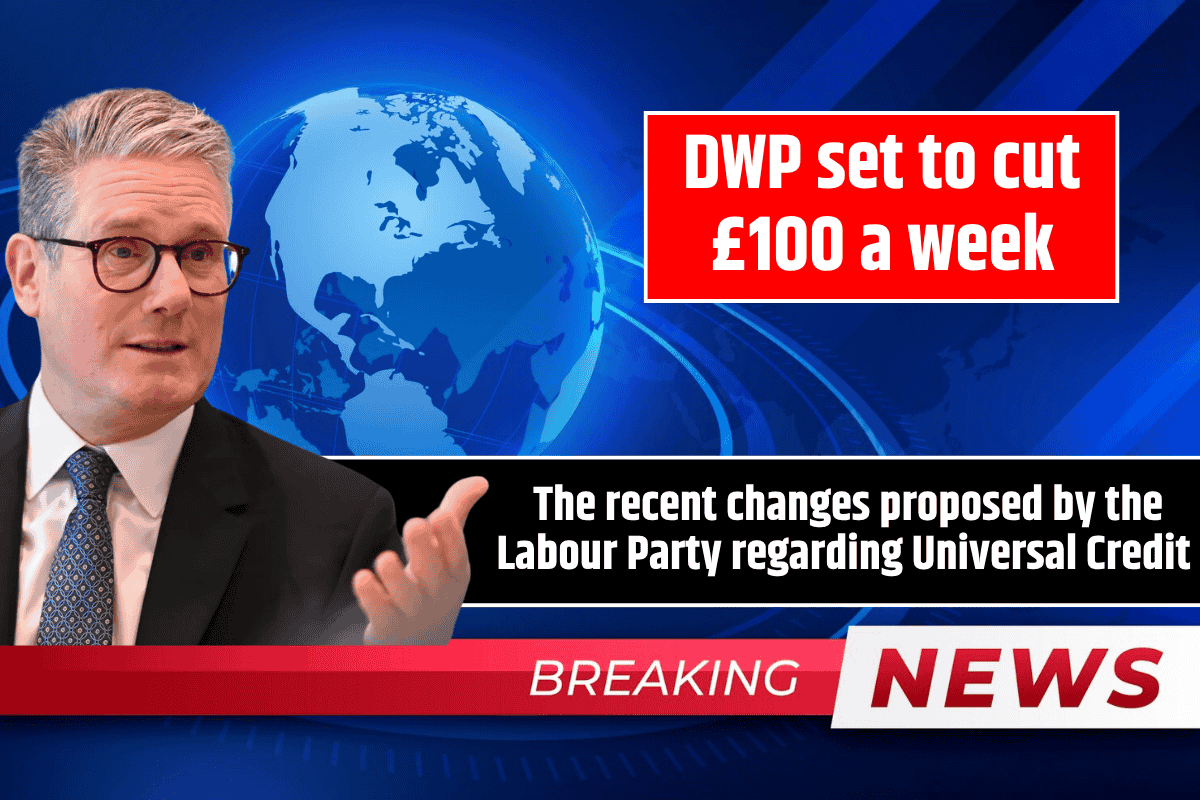The recent changes proposed by the Labour Party regarding Universal Credit have raised concerns for many disabled young people in the UK. These proposed adjustments could result in a significant loss of financial support for disabled adults, particularly those aged under 22.
The Department for Work and Pensions (DWP) has planned to scrap the health component of Universal Credit for this age group, leading to fears that hundreds of thousands of young disabled people may face a financial hardship. This article explores the potential impact of these changes, who will be affected, and the wider implications.
What Are the Proposed Changes?
The government’s plans involve removing the health component of Universal Credit for individuals under 22 years old. The health component is a critical part of Universal Credit, which provides financial support for disabled individuals, helping them manage their daily living costs. As a result of these changes, around 110,000 disabled young adults are at risk of losing nearly £100 a week. This could mean a £400 monthly reduction, amounting to £4,800 a year.
Who Will Be Affected?
The main group impacted by this change will be disabled young people, particularly those who are NEET (Not in Education, Employment, or Training). Many of these young adults face significant challenges in entering the job market due to their disabilities. Disability Rights UK, a charity that advocates for disabled people, has raised alarms about how this proposal will affect young people who are already struggling to make ends meet.
In addition to NEET individuals, many young disabled people who are still in non-advanced education may also be affected by this reduction. The charity explains that, under the current rules, families with a disabled 19-year-old already experience a loss in income when the child stops being treated as a dependent.
This typically results in a £29.25 weekly income reduction when the young person starts claiming Universal Credit as an adult. However, under the new proposal, this drop could become even greater.
How Much Will Young Disabled People Lose?
Under the current system, young disabled people aged 19 and above can receive £170 a week in Universal Credit if they are eligible. But with the new proposal, this amount will drop to just £73 per week for those under 22. This £97 reduction would leave many families struggling to cover basic costs, especially for those already dealing with the financial challenges of raising a disabled child.
For many families, this cut would represent a significant loss in household income, with the impact being felt most by those already dealing with economic hardship. Disability Rights UK has warned that, for many of these families, the financial strain would be unbearable, with a £400 monthly reduction being particularly damaging for those living on low incomes.
What Is the Government’s Plan?
The government’s plan, laid out in the Get Britain Working White Paper and its related Pathways to Work initiative, aims to break down barriers to employment for young people. This includes a Youth Guarantee to ensure that every young person aged 18 to 21 in England has access to either education, training, or help to find a job or apprenticeship.
While this initiative is intended to support young people entering the workforce, critics argue that the removal of the health component of Universal Credit for under-22s will leave many disabled individuals without adequate financial support, putting them at even greater risk of financial hardship.
What Are the Implications?
The removal of the health component could have wide-reaching consequences for both individuals and families. Disabled young people are likely to find it harder to support themselves, especially in areas where employment opportunities are already limited due to their disabilities. This could also exacerbate existing inequalities, with young disabled people falling further behind in terms of income and opportunity.
Furthermore, it may also place additional pressure on charities and community organizations that already support disabled individuals. As families struggle to cope with reduced financial support, there may be an increased demand for external aid and resources, which could further strain the support systems in place.
The proposed changes to Universal Credit for young disabled people are likely to have serious financial and social consequences. While the government’s broader plans to help young people into education, training, and employment are commendable, the cuts to Universal Credit could undermine the financial security of many disabled families.
Disability Rights UK and other advocates are calling for a rethink on these proposed cuts, warning that the consequences could be disastrous for those already struggling with the added challenges of disability. The coming months will reveal whether the government listens to these concerns and adjusts its plans accordingly.
FAQs
Who will be affected by the changes to Universal Credit?
Disabled young people aged under 22 who claim Universal Credit are at risk of losing up to £100 a week under the proposed changes.
How much will young disabled people lose in Universal Credit payments?
Young disabled people aged under 22 may see a reduction from £170 a week to £73, resulting in a loss of up to £97 a week.
What is the government’s plan for young people under 22?
The government plans to remove the health component of Universal Credit for under-22s while offering a Youth Guarantee for education, training, or employment support.
How will these changes affect families?
The reduction in Universal Credit payments could mean a £400 monthly loss, which will place significant financial strain on families of disabled young adults.
What support is available for disabled young people?
Many disabled young people can still access other forms of support, but these proposed cuts may make it harder for them to meet their needs without additional help.








